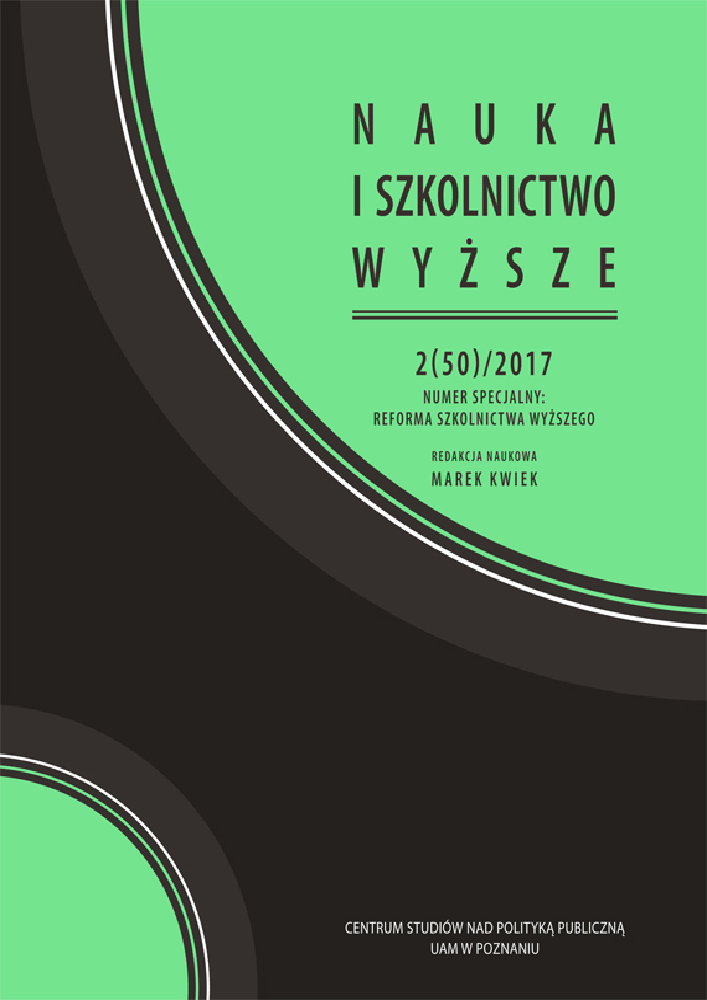Abstract
Scientific excellence cannot be decreed. However, it can and must be pursued by introducing pro-quality solutions in the financing of science and cultivating a culture of excellence in the scientific community. Research universities should be appointed in an open, two-stage competition.
Candidate universities would present their organizational and management restructuring plan and their conception for improving the quality of their teaching and research. To improve the system for evaluation of the quality of research and teaching and the process of obtaining academic degrees and titles, firstly a new categorization of research fields should be introduced (patterned on the ERC). Parametric assessment based on assignment of points to periodicals should be replaced by assessment based on parameters better reflecting the individual contribution of the specific publication to the development of the research field or academic discipline – mean normalized citation score and PP (top 10%). In the future university system, the rector should have strong executive authority, but his actions must be transparent. The rector should be answerable for his decisions before the professionally qualified body which participated in his appointment and in extreme instances should be empowered to remove him. For proper commercialization of research results, it is necessary to develop an entire ecosystem fostering this process (creation of spinoff firms affiliated with universities, sale by technology transfer centres of licences for patents arising at the university, and financial incentives for cooperation with industry).
References
Kwiek, M. (2012). Uniwersytet jako wspólnota badaczy? Polska z europejskiej perspektywy porównawczej i ilościowej. Nauka i Szkolnictwo Wyższe. 2(40): 71-101.
Wróblewski, A.K. (2017). Nie wszystko, co się liczy, da się policzyć... Nauka. 1: 7-22.
